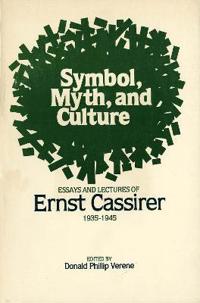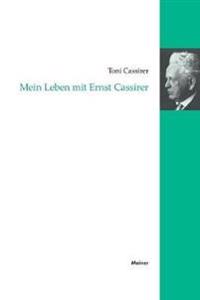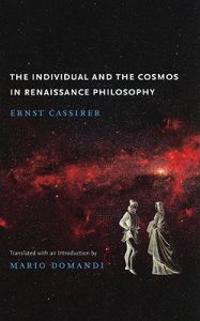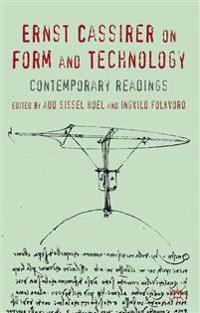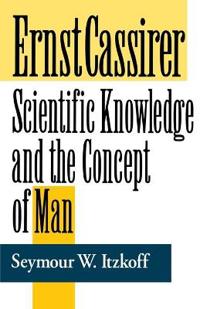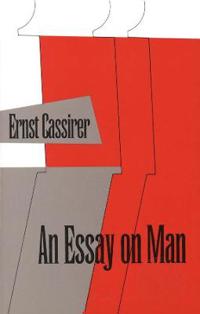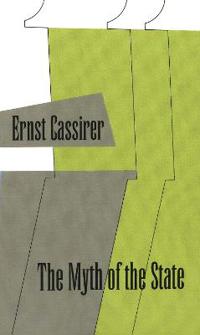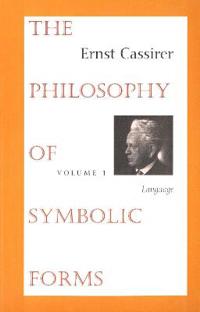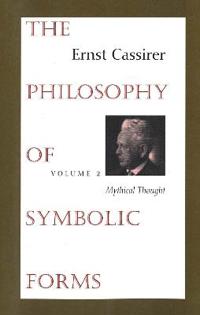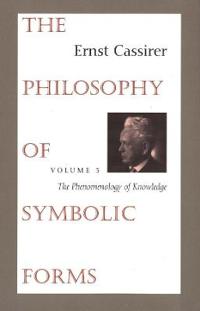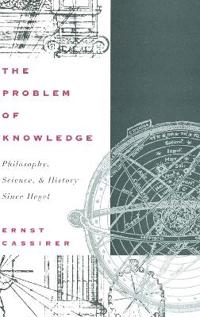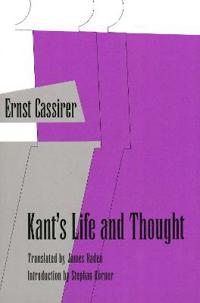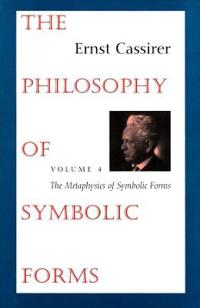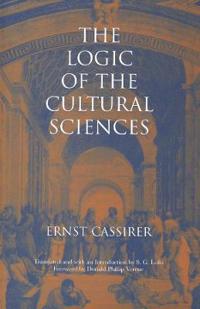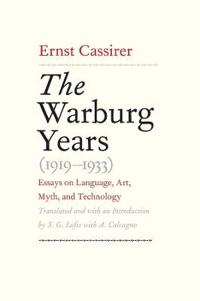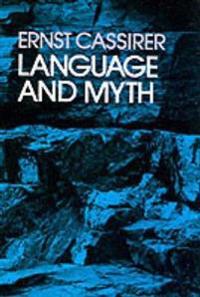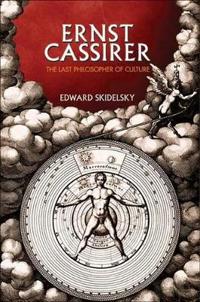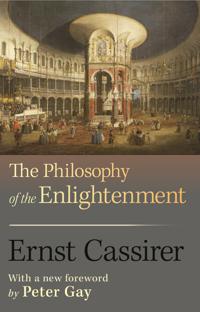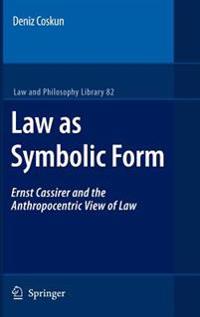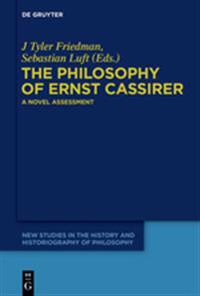Symbol, Myth, and Culture: Essays and Lectures of Ernst Cassirer, 1935-1945 (Häftad)
avErnst Cassirer, Donald P. Verne, Donald Phillip Verene
ISBN: 9780300026665 - UTGIVEN: 198103The papers in this volume of Ernst Cassirer's unpublished works give insight into the major issues that engaged Cassirer's interest between 1935 and 1945. Ernst Cassirer has been read and studied by generations of students, and in this book they will find illuminations, in a more informal voice, of [...]
The Individual and the Cosmos in Renaissance Philosophy (Häftad)
avErnst Cassirer
ISBN: 9780226096070 - UTGIVEN: 2010-04This provocative volume, one of the most important interpretive works on the philosophical thought of the Renaissance, has long been regarded as a classic in its field. Ernst Cassirer here examines the changes brewing in the early stages of the Renaissance, tracing the interdependence of philosophy,[...]
Ernst Cassirer on Form and Technology (Inbunden)
ISBN: 9780230365476 - UTGIVEN: 201208Cassirer's thought-provoking essay Form and Technology (1930) considers the theoretical work performed by material instruments and, in so doing, it ascribes to technology a new dignity as a genuine tool of the mind in equal company with language and art. Germinating in this essay, we find an ambitio[...]
Ernst Cassirer
ISBN: 9780268009373 - UTGIVEN: 1997-06A discussion of the work of German philosopher Ernst Cassirer. It brings Cassirer's perspective directly into the contemporary debate over human thought and its relationship to animal life. The author places Cassirer in the context of recent philosophical thought.[...]
An Essay on Man: An Introduction to a Philosophy of Human Culture (Häftad)
avErnst Cassirer
ISBN: 9780300000344 - UTGIVEN: 196209The Myth of the State (Häftad)
avErnst Cassirer
ISBN: 9780300000368 - UTGIVEN: 196110A great contemporary German philosopher attacks the explosive problem of political myth in our day. In this final work Ernst Cassirer shows how the irrational forces symbolized by myth and manipulation by the state constantly threaten to destroy the independent mind of civilized man. "A brilliant su[...]
Philosophy of Symbolic Forms (Häftad)
avErnst Cassirer
ISBN: 9780300000375 - UTGIVEN: 196509The Symbolic Forms has long been considered the greatest of Cassirer's works. Into it he poured all the resources of his vast learning about language and myth, religion, art, and science-the various creative symbolizing activities and constructions through which man has expressed himself and given [...]
Philosophy of Symbolic Forms (Häftad)
avErnst Cassirer
ISBN: 9780300000382 - UTGIVEN: 195512The Symbolic Forms has long been considered the greatest of Cassirer's works. Into it he poured all the resources of his vast learning about language and myth, religion, art, and science-the various creative symbolizing activities and constructions through which man has expressed himself and given i[...]
The Philosophy of Symbolic Forms (Häftad)
avErnst Cassirer
ISBN: 9780300000399 - UTGIVEN: 196509The Symbolic Forms has long been considered the greatest of Cassirer's works. Into it he poured all the resources of his vast learning about language and myth, religion, art, and science-the various creative symbolizing activities and constructions through which man has expressed himself and given [...]
The Problem of Knowledge (Häftad)
avErnst Cassirer
ISBN: 9780300010985 - UTGIVEN: 196904"Cassirer employs his remarkable gift of lucidity to explain the major ideas and intellectual issues that emerged in the course of nineteenth century scientific and historical thinking. The translators have done an excellent job in reproducing his clarity in English. There is no better place for an [...]
Kant's Life and Thought (Häftad)
avErnst Cassirer
ISBN: 9780300029826 - UTGIVEN: 198307"Here is the first Kant-biography in English since Paulsen's and Cassirer's only full-scale study of Kant's philosophy. On a very deep level, all of Cassirer's philosophy was based on Kant's, and accordingly this book is Cassirer's explicit coming to terms with his own historical origins. It sensiti[...]
The Philosophy of Symbolic Forms (Häftad)
avErnst Cassirer
ISBN: 9780300074338 - UTGIVEN: 199801At his death in 1945, the influential German philosopher Ernst Cassirer left manuscripts for the fourth and final volume of his magnum opus, The Philosophy of Symbolic Forms. John Michael Krois and Donald Phillip Verene have edited these writings and translated them into English for the first time, [...]
The Logic of the Cultural Sciences (Häftad)
avErnst Cassirer
ISBN: 9780300081152 - UTGIVEN: 200011This new translation of The Logic of the Cultural Sciences (formerly entitled The Logic of the Humanities) makes Ernst Cassirer's classic study, long out of print, available to English readers. A German Jew living in exile at the beginning of the Second World War, Cassirer wrote this book-one of his[...]
The Warburg Years (1919-1933) (Inbunden)
avErnst Cassirer
ISBN: 9780300108194 - UTGIVEN: 2014-01Jewish German philosopher Ernst Cassirer was a leading proponent of the Marburg school of neo-Kantianism. The essays in this volume provide a window into Cassirer's discovery of the symbolic nature of human existence--that our entire emotional and intellectual life is configured and formed through t[...]
Language and Myth (Pocket)
avErnst Cassirer
ISBN: 9780486200514 - UTGIVEN: 194606Analyzes nonrational thought processes underlying grammar; Indian philosophy, modern poetry, etc.
[...]Ernst Cassirer (Inbunden)
avEdward Skidelsky
ISBN: 9780691131344 - UTGIVEN: 200810This is the first English-language intellectual biography of the German-Jewish philosopher Ernst Cassirer (1874-1945), a leading figure on the Weimar intellectual scene and one of the last and finest representatives of the liberal-idealist tradition. Edward Skidelsky traces the development of Cassir[...]
The Philosophy of the Enlightenment (Häftad)
avErnst Cassirer
ISBN: 9780691143347 - UTGIVEN: 200908In this classic work of intellectual history, Ernst Cassirer provides both a cogent synthesis and a penetrating analysis of one of history's greatest intellectual epochs: the Enlightenment. Arguing that there was a common foundation beneath the diverse strands of thought of this period, he shows how[...]
Ernst Cassirer (Pocket)
avEdward Skidelsky
ISBN: 9780691152356 - UTGIVEN: 2011-11-01A biography of the German-Jewish philosopher Ernst Cassirer (1874-1945), a leading figure on the Weimar intellectual scene and one of the last and finest representatives of the liberal-idealist tradition. It traces the development of Cassirer's thought in its historical and intellectual setting.[...]
Ernst Cassirer (häftad)
ISBN: 9780791444962 - UTGIVEN: 2000-03This systematic introduction to Ernst Cassirer's philosophy of symbolic forms demonstrates how his approach transforms the project of modernity in accord with the limitations of the modern conception of rationality. At the same time, this book functions as an introduction to Cassirer's thought.[...]
Ernst Cassirer and the Critical Science of Germany, 1899-1919 (Inbunden)
ISBN: 9780857283214 - UTGIVEN: 2013-07Law as Symbolic Form: Ernst Cassirer and the Anthropocentric View of Law (Inbunden)
avDeniz Coskun
ISBN: 9781402062551 - UTGIVEN: 200707This book describes the rule of law as the reign of persuasion rather than the reign of force, and democracy as the reign by persuasion rather than the reign by force. It synthesizes a vast amount of current Cassirer-literature and makes a contribution to jurisprudence. The book is the first systema[...]
Ernst Cassirer and the Critical Science of Germany, 1899-1919
ISBN: 9781783083435 - UTGIVEN: 2014-12Ernst Cassirer
ISBN: 9783039106882 - UTGIVEN: 2006-03Ernst Cassirer was professor in Goteborg from 1935 to 1941. This episode of his life is little known, even though the Swedish years were very important. During that time of political turmoil he wrote several books and most of the papers that are now being published posthumously.
This book - base[...]

